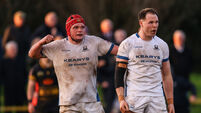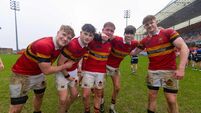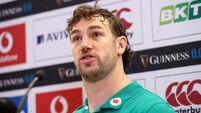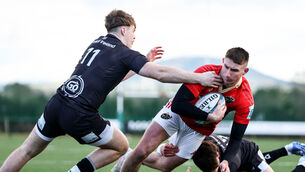Jordan Larmour joins the game’s galaxy of hat-tricksters
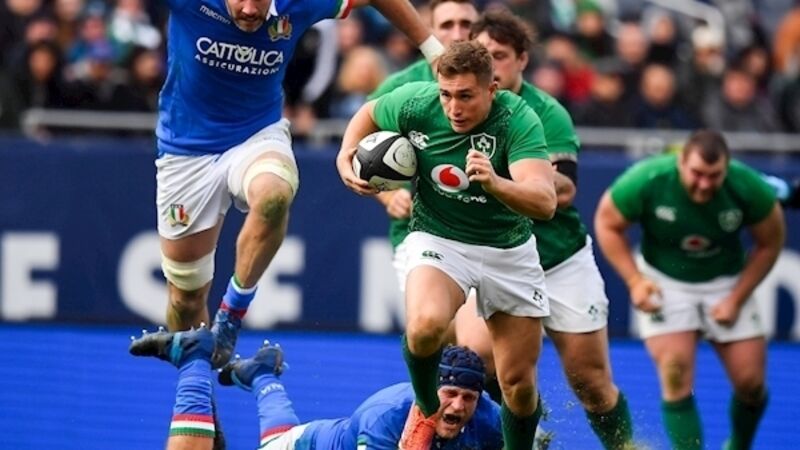
gets over the gain line, behind the headline
Apart from an aggregate total of more than 300 Test appearances, Tommy Bowe, Keith Earls, Rob Kearney and Andrew Trimble share another common denominator.







